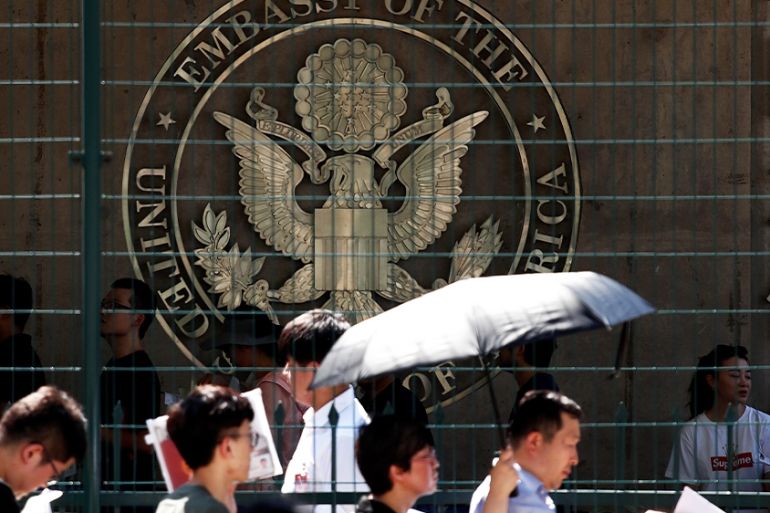China accuses US of harassing scholars, entrepreneurs over visas

China has accused the United States of harassing Chinese scholars, students, entrepreneurs and scientists, in part through the denial or revocation of visas.
Foreign Ministry spokesman Geng Shuang said the actions by the US had “thwarted normal people-to-people exchange between China and the US and infringed upon the safety and lawful rights and interests of the Chinese personnel involved”.
Keep reading
list of 4 itemsHow a Gaza protest at Indiana University became a battle for free speech
UK starts detaining asylum seekers to be deported to Rwanda
‘We didn’t expect to find bones’: Inside one Gaza family’s nightmare
It had been going on for “some time”, he added.
His complaint on Wednesday came as China demanded Washington lift restrictions on the sale of US technology to a group of Chinese companies, calling it interference in the country’s affairs.
American officials said those companies provided technology used to repress Muslim minorities in the northwestern region of Xinjiang.
The US has been increasing pressure on China over Xinjiang in recent days also announcing a visa ban on Chinese officials considered to be linked to events in the far western region.
|
|
China plans stricter rules
US Secretary of State Mike Pompeo said on Wednesday that China’s treatment of Muslims, including the Uighurs, was an “enormous human rights violation”.
The sanctions announced on Monday restrict sales of US technology to a group of Chinese companies working on facial recognition, artificial intelligence and other advanced products.
China is also said to be planning to tighten rules on visas for US nationals with ties to anti-China groups.
The Ministry of Public Security has for months been working on rules to limit the ability of anyone employed, or sponsored, by US intelligence services and human rights groups to travel to China.
The ruling party has long distrusted such individuals, but ongoing violent anti-government demonstrations in Hong Kong are believed to have added to their suspicions.
Beijing has accused foreign governments and organisations of encouraging the demonstrations in a bid to smear China’s reputation and constrain its development.